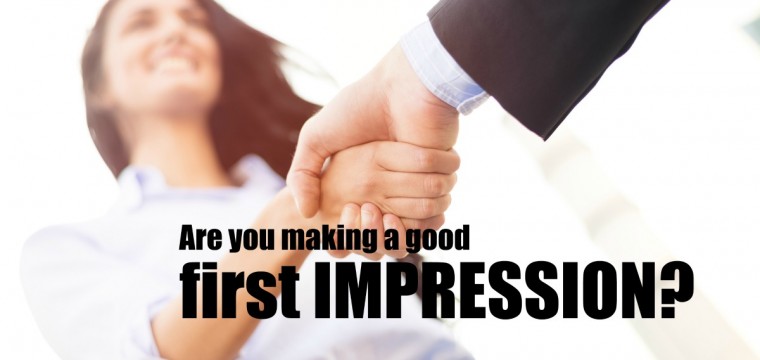#1: Do you fail to realize that first impressions are formed in the first three seconds; not in the first five minutes?
#2: Do you under estimate or don’t include the importance of the customer’s physical surroundings as it relates to their overall impression?
#3: Do you realize the significance of their emotional state just prior to meeting us as a contributing factor to their first impression?
The Primacy Effect
The Primacy effect refers to the process where our first impression’s of another person causes us to interpret his or her subsequent behavior in a manner that is consistent with our first impression.
In effect, we create an image of the person right when we meet him, and we trust or distrust, like, or dislike all his further actions based on that split second interaction. One of the big mistakes sales people make is that we pick our customer’s up in the reception area in a haphazard way thinking that we’ll wait and create a great impression in the warm-up. Little did we know it could be too late!
When Does The First Impression Begin?
In a study by Higgins, Rhodes & Jones (1977), they proved that even the words someone came in contact with prior to meeting a person formed a negative or positive view of that person, i.e., those who memorized the words reckless, conceited, aloof, and stubborn had a more pessimistic view of someone than those who first memorized the terms adventurous, self confident, independent, and persistent. Even though these words had nothing to do with the person, these qualities were easily accessible in the people’s minds. And hence, they subconsciously ascribed them to a person they then met.
If you want to make a favorable impression on someone, it would benefit you if that person was recently exposed to positive adjectives.
[Tweet “Use strong, specific, positive language to make favorable impressions. #salestips #levitinlearning”]
The Law of Association
In addition to words being able to shape initial impressions, the mood that someone is in prior to meeting you will greatly affect his or her impression of you. If someone is in a good mood when they are with you, they are more apt to like you. What’s more, if something exciting or positive happens to someone when they are with you, they will anchor those positive feelings with you. Of course, the converse is true as well. (You could be an innocent victim of circumstance. It’s actually a proven fact that if someone gets a stomachache in your presence, and experiences unpleasant feelings and/or pain they’ll actually like you less!)
“You are an unknown quantity for only 120 seconds. After that everything you say will be heard in the context of your impression from your first two minutes.”
– David Peoples
